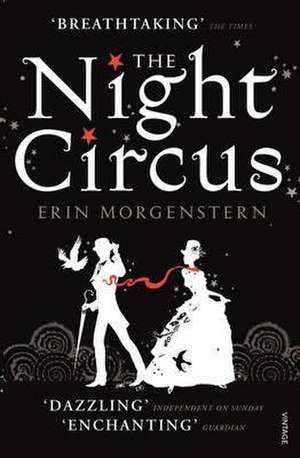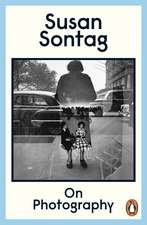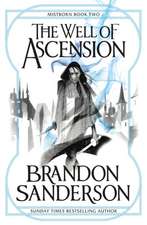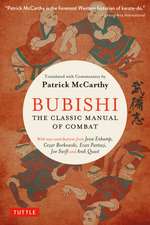The Night Circus: Best of Young Adult & Fantasy
Autor Erin Morgensternen Limba Engleză Paperback – 24 mai 2012
| Toate formatele și edițiile | Preț | Express |
|---|---|---|
| Paperback (5) | 56.79 lei 24-30 zile | +25.17 lei 4-10 zile |
| Vintage Publishing – 24 mai 2012 | 56.79 lei 24-30 zile | +25.17 lei 4-10 zile |
| Random House – 6 oct 2016 | 57.80 lei 24-30 zile | +26.88 lei 4-10 zile |
| Random House – 24 mai 2012 | 58.02 lei 3-5 săpt. | +11.37 lei 4-10 zile |
| Random House LLC US – mai 2012 | 72.85 lei 17-23 zile | +6.32 lei 4-10 zile |
| Anchor Books – 30 iun 2012 | 110.61 lei 3-5 săpt. | +18.70 lei 4-10 zile |
| Hardback (3) | 103.38 lei 24-30 zile | +40.14 lei 4-10 zile |
| Random House – 4 apr 2024 | 103.38 lei 24-30 zile | +40.14 lei 4-10 zile |
| Doubleday Books – 31 aug 2011 | 211.19 lei 3-5 săpt. | |
| Bloomsbury Publishing – 30 iun 2012 | 223.82 lei 3-5 săpt. |
Preț: 56.79 lei
Preț vechi: 65.52 lei
-13% Nou
Puncte Express: 85
Preț estimativ în valută:
10.87€ • 11.38$ • 8.99£
10.87€ • 11.38$ • 8.99£
Carte disponibilă
Livrare economică 20-26 martie
Livrare express 28 februarie-06 martie pentru 35.16 lei
Preluare comenzi: 021 569.72.76
Specificații
ISBN-13: 9780099554790
ISBN-10: 0099554798
Pagini: 512
Dimensiuni: 134 x 204 x 35 mm
Greutate: 0.4 kg
Editura: Vintage Publishing
Seria Best of Young Adult & Fantasy
ISBN-10: 0099554798
Pagini: 512
Dimensiuni: 134 x 204 x 35 mm
Greutate: 0.4 kg
Editura: Vintage Publishing
Seria Best of Young Adult & Fantasy
Notă biografică
Erin Morgenstern is a writer and a multimedia artist, who describes all her work as 'fairy tales in one way or another'. She lives in Boston, Massachusetts. www.erinmorgenstern.com Facebook.com/thenightcircus www.nightcircus.co.uk.
Recenzii
.
Extras
ANTICIPATION
The circus arrives without warning.
No announcements precede it, no paper notices on downtown posts and billboards, no mentions or advertisements in local newspapers. It is simply there, when yesterday it was not.
The towering tents are striped in white and black, no golds and crimsons to be seen. No color at all, save for the neighboring trees and the grass of the surrounding fields. Black-and-white stripes on grey sky; countless tents of varying shapes and sizes, with an elaborate wrought-iron fence encasing them in a colorless world. Even what little ground is visible from outside is black or white, painted or powdered, or treated with some other circus trick.
But it is not open for business. Not just yet.
Within hours everyone in town has heard about it. By afternoon the news has spread several towns over. Word of mouth is a more effective method of advertisement than typeset words and exclamation points on paper pamphlets or posters. It is impressive and unusual news, the sudden appearance of a mysterious circus. People marvel at the staggering height of the tallest tents. They stare at the clock that sits just inside the gates that no one can properly describe.
And the black sign painted in white letters that hangs upon the gates, the one that reads:
Opens at Nightfall
Closes at Dawn
“What kind of circus is only open at night?” people ask. No one has a proper answer, yet as dusk approaches there is a substantial crowd of spectators gathering outside the gates.
You are amongst them, of course. Your curiosity got the better of you, as curiosity is wont to do. You stand in the fading light, the scarf around your neck pulled up against the chilly evening breeze, waiting to see for yourself exactly what kind of circus only opens once the sun sets.
The ticket booth clearly visible behind the gates is closed and barred. The tents are still, save for when they ripple ever so slightly in the wind. The only movement within the circus is the clock that ticks by the passing minutes, if such a wonder of sculpture can even be called a clock.
The circus looks abandoned and empty. But you think perhaps you can smell caramel wafting through the evening breeze, beneath the crisp scent of the autumn leaves. A subtle sweetness at the edges of the cold.
The sun disappears completely beyond the horizon, and the remaining luminosity shifts from dusk to twilight. The people around you are growing restless from waiting, a sea of shuffling feet, murmuring about abandoning the endeavor in search of someplace warmer to pass the evening. You yourself are debating departing when it happens.
First, there is a popping sound. It is barely audible over the wind and conversation. A soft noise like a kettle about to boil for tea. Then comes the light.
All over the tents, small lights begin to flicker, as though the entirety of the circus is covered in particularly bright fireflies. The waiting crowd quiets as it watches this display of illumination. Someone near you gasps. A small child claps his hands with glee at the sight.
When the tents are all aglow, sparkling against the night sky, the sign appears.
Stretched across the top of the gates, hidden in curls of iron, more firefly-like lights flicker to life. They pop as they brighten, some accompanied by a shower of glowing white sparks and a bit of smoke. The people nearest to the gates take a few steps back.
At first, it is only a random pattern of lights. But as more of them ignite, it becomes clear that they are aligned in scripted letters. First a C is distinguishable, followed by more letters. A q, oddly, and several e’s. When the final bulb pops alight, and the smoke and sparks dissipate, it is finally legible, this elaborate incandescent sign. Leaning to your left to gain a better view, you can see that it reads:
Le Cirque des Rêves
Some in the crowd smile knowingly, while others frown and look questioningly at their neighbors. A child near you tugs on her mother’s sleeve, begging to know what it says.
“The Circus of Dreams,” comes the reply. The girl smiles delightedly.
Then the iron gates shudder and unlock, seemingly by their own volition. They swing outward, inviting the crowd inside.
Now the circus is open.
Now you may enter.
PART I:
Primordium
"The Whole of Le Cirque des Rêves is formed by a series of circles. Perhaps it is a tribute to the origin of the word 'circus,' deriving from the Greek kirkos meaning circle, or ring. There are many such nods to the phenomenon of the circus in a historical sense, though it is hardly a traditional circus. Rather than a single tent with rings enclosed within, this circus contains clusters of tents like pyramids, some large and others quite small. They are set within circular paths, contained within a circular fence. Looping and continuous."
--Friedrick Thiessen, 1892
"A dreamer is one who can only find his way by moon-light, and his punishment is that he sees the dawn before the rest of the world."
--Oscar Wilde, 1888
UNEXPECTED POST
New York, February 1873
The man billed as Prospero the Enchanter receives a fair amount of correspondence via the theater office, but this is the first envelope addressed to him that contains a suicide note, and it is also the first to arrive carefully pinned to the coat of a five-year-old girl.
The lawyer who escorts her to the theater refuses to explain despite the manager’s protestations, abandoning her as quickly as he can with no more than a shrug and the tip of a hat.
The theater manager does not need to read the envelope to know who the girl is for. The bright eyes peering out from under a cloud of unruly brown curls are smaller, wider versions of the magician’s own.
He takes her by the hand, her small fingers hanging limp within his. She refuses to remove her coat despite the warmth of the theater, giving only an adamant shake of her head when he asks her why.
The manager takes the girl to his office, not knowing what else to do with her. She sits quietly on an uncomfortable chair beneath a line of framed posters advertising past productions, surrounded by boxes of tickets and receipts. The manager brings her a cup of tea with an extra lump of sugar, but it remains on the desk, untouched, and grows cold.
The girl does not move, does not fidget in her seat. She stays perfectly still with her hands folded in her lap. Her gaze is fixed downward, focused on her boots that do not quite touch the floor. There is a small scuff on one toe, but the laces are knotted in perfect bows.
The sealed envelope hangs from the second topmost button of her coat, until Prospero arrives.
She hears him before the door opens, his footsteps heavy and echoing in the hall, unlike the measured pace of the manager who has come and gone several times, quiet as a cat.
“There is also a . . . package for you, sir,” the manager says as he opens the door, ushering the magician into the cramped office before slipping off to attend to other theater matters, having no desire to witness what might become of this encounter.
The magician scans the office, a stack of letters in one hand, a black velvet cape lined with shockingly white silk cascading behind him, expecting a paper-wrapped box or crate. Only when the girl looks up at him with his own eyes does he realize what the theater manager was referring to.
Prospero the Enchanter’s immediate reaction upon meeting his daughter is a simple declaration of: “Well, fuck.”
The girl returns her attention to her boots.
The magician closes the door behind him, dropping the stack of letters on the desk next to the teacup as he looks at the girl.
He rips the envelope from her coat, leaving the pin clinging steadfastly to its button.
While the writing on the front bears his stage name and the theater address, the letter inside greets him with his given name, Hector Bowen.
He skims over the contents, any emotional impact desired by the author failing miserably and finally. He pauses at the only fact he deems relevant: that this girl now left in his custody is, obviously, his own daughter and that her name is Celia.
“She should have named you Miranda,” the man called Prospero the Enchanter says to the girl with a chuckle. “I suppose she was not clever enough to think of it.”
The girl looks up at him again. Dark eyes narrow beneath her curls.
The teacup on the desk begins to shake. Ripples disrupt the calm surface as cracks tremble across the glaze, and then it collapses in shards of flowered porcelain. Cold tea pools in the saucer and drips onto the floor, leaving sticky trails along the polished wood.
The magician’s smile vanishes. He glances back at the desk with a frown, and the spilled tea begins seeping back up from the floor. The cracked and broken pieces stand and re-form themselves around the liquid until the cup sits complete once more, soft swirls of steam rising into the air.
The girl stares at the teacup, her eyes wide.
Hector Bowen takes his daughter’s face in his gloved hand, scrutinizing her expression for a moment before releasing her, his fingers leaving long red marks across her cheeks.
“You might be interesting,” he says.
The girl does not reply.
He makes several attempts to rename her in the following weeks, but she refuses to respond to anything but Celia.
*
Several months later, once he decides she is ready, the magician writes a letter of his own. He includes no address, but it reaches its destination across the ocean nonetheless.






















